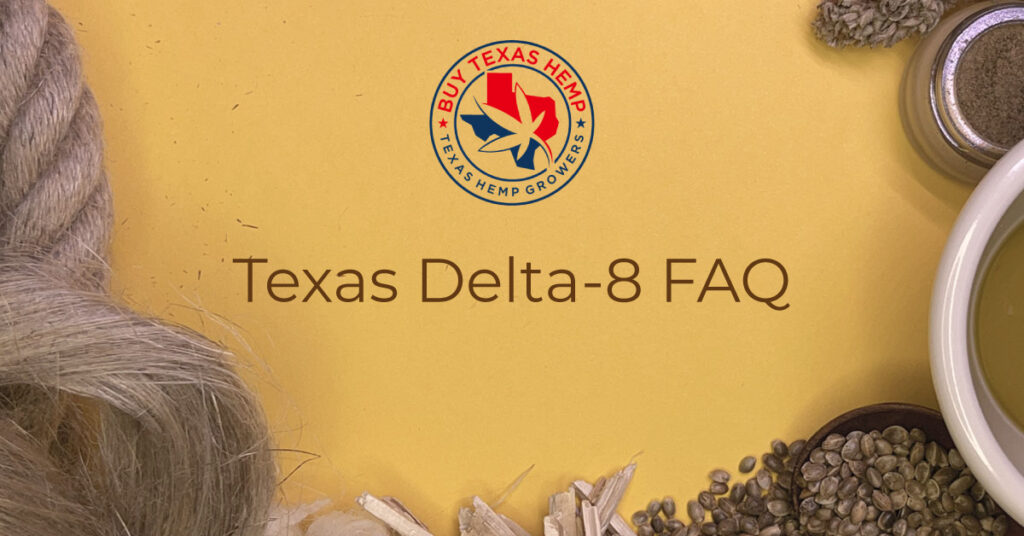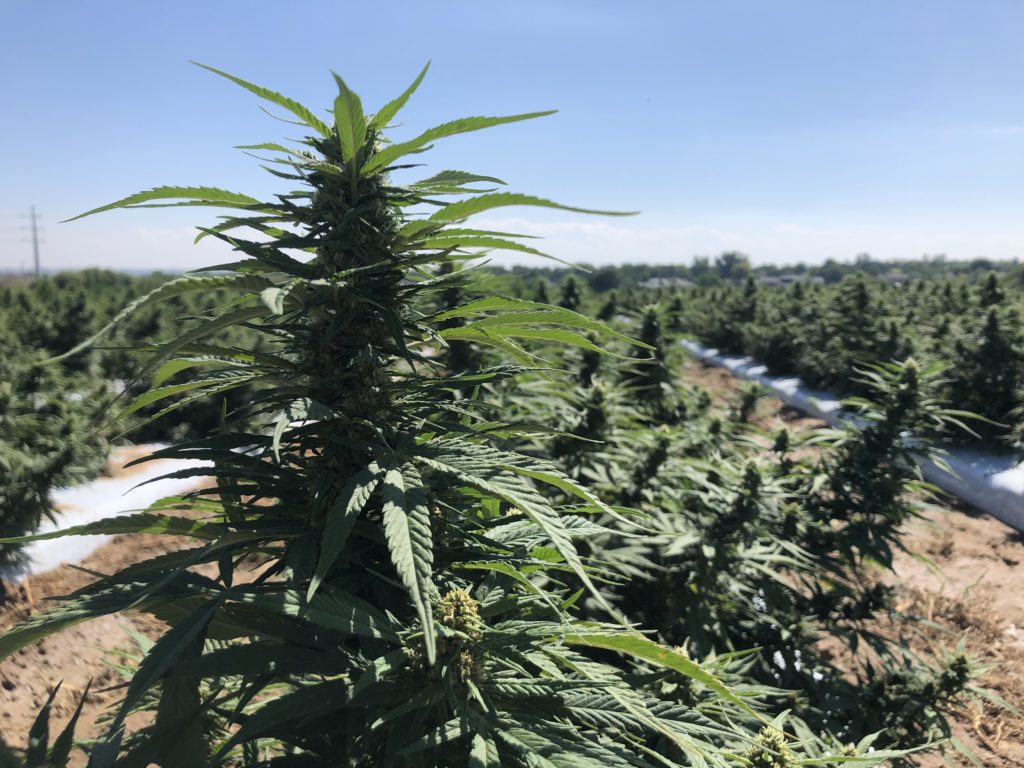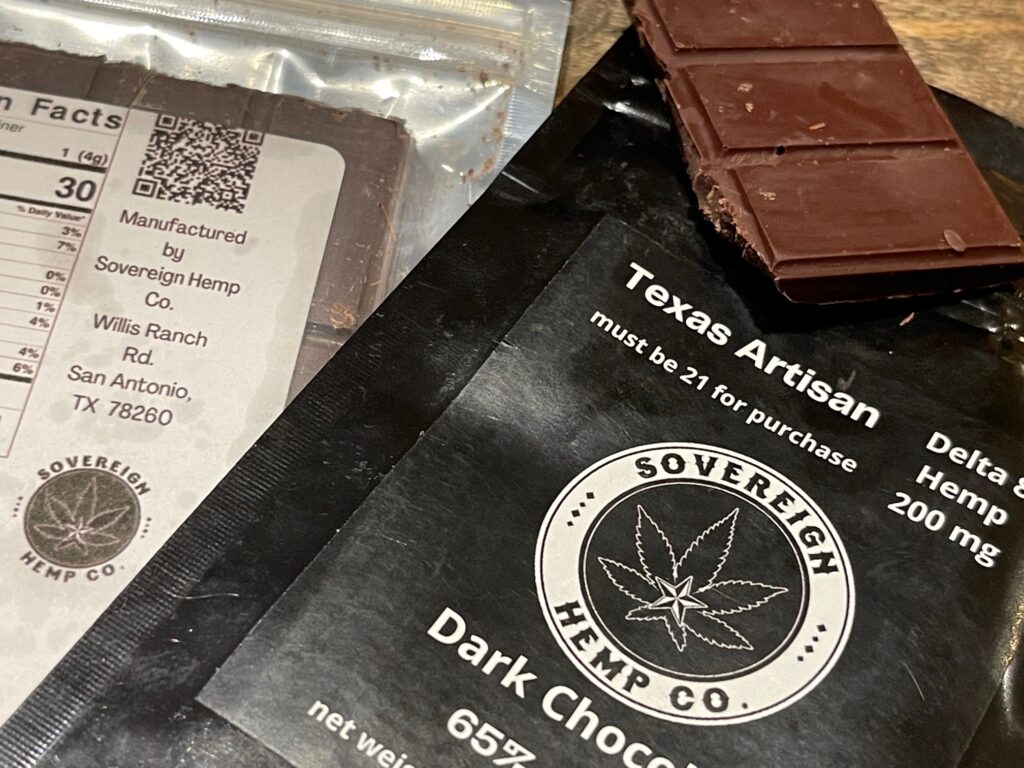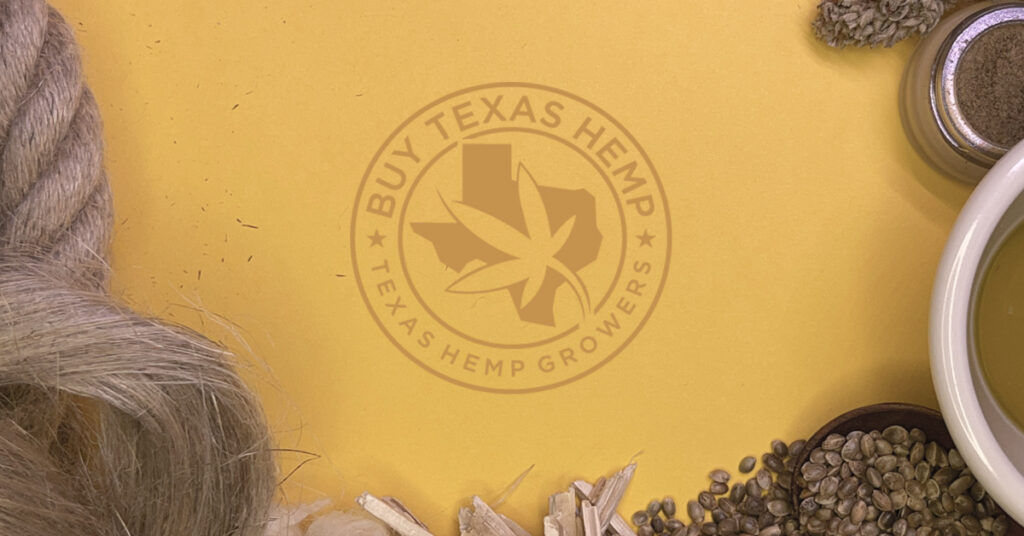Delta-8 ban could deprive Texas retailers of $51.4 million in annual sales
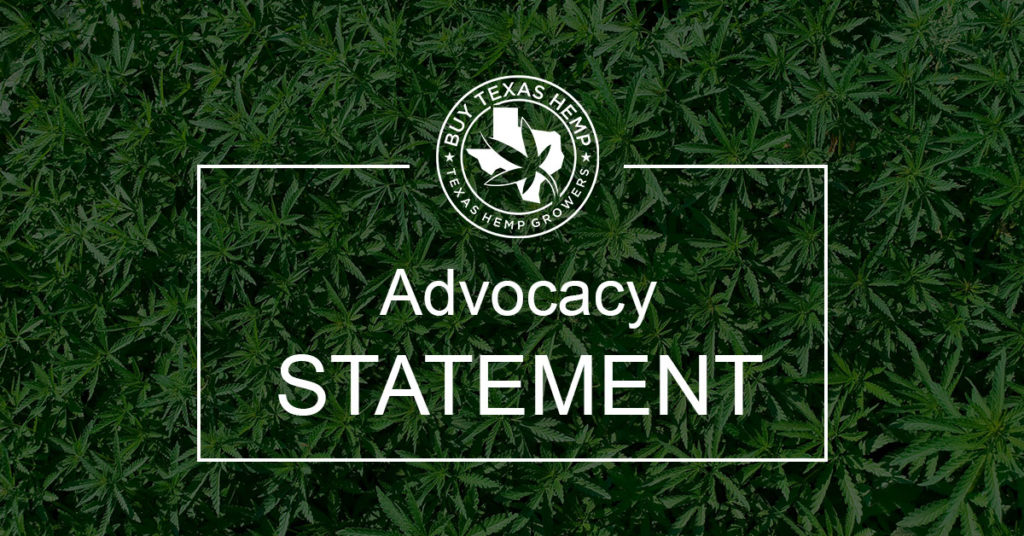
The Senate Committee on Agriculture, Water, and Rural Affairs is scheduled to hear H.B. 3948 on May 18 at 8 a.m. During this hearing, Sen. Charles Perry’s office is expected to make a move to ban Delta-8 and any isomers in Texas. TAKE ACTION now by clicking here. In advance of the committee hearing, Texas Hemp Growers releases the following statement to lawmakers:
On behalf of over 250 hemp professionals that form the foundation of Texas Hemp Growers, we respectfully request that Delta-8 and its isomers be responsibly regulated as an age-restricted substance available to adults age 21 and older, who present a valid driver’s license at a licensed retailer. A full list of our recommendations is made near the bottom of this letter.
Our association estimates that a ban on Delta-8 and related isomers would, at minimum, cost the state approximately $3.2 million in sales tax revenue annually. It would further eliminate an estimated $51.4 million dollars in annual retail sales revenue that could be shared by small businesses across Texas. This doesn’t account for compound growth in the market.
A breakdown of these figures is provided at the end of this letter.
The federal definition of hemp adopted under the 2018 Farm Bill is defined as “the plant Cannabis sativa L. and any part of that plant, including the seeds thereof and all derivatives, extracts, cannabinoids, isomers, acids, salts, and salts of isomers, whether growing or not, with a delta-9 tetrahydrocannabinol concentration of not more than 0.3 percent on a dry weight basis.” [1]
Emphasis is added on the parts of the definition that would provide for Delta-8. And while we acknowledge the Drug Enforcement Agency has made the legally dubious [2] claim in its Interim Final Rule that Delta-8 wasn’t legalized, we note an active industry-led lawsuit challenging the DEA’s position. [3] That lawsuit seeks judicial clarity, based on the federal definition provided above.
Federal Republicans embraced hemp in 2018. Texas Republicans should now.
I can’t speak for the politics of every Texas Hemp Growers member. However, I can speak for mine, which is that of a committed Republican.
The federal definition of hemp was adopted by a Republican-controlled Congress and White House. I don’t think that was a mistake. For the first time in recent history, the National Republican Party expanded the umbrella to new voters, by providing an unprecedented opportunity for advancement and innovation in hemp. The GOP rightfully deserves praise for this move.
We should stand alongside other Republican-controlled states like Oklahoma and Florida, which subscribe to the full definition of hemp provided by the federal government. In banning the market, Texas would be joining a minority group of states that would adopt a stricter definition for hemp. [4]
Farmers are benefiting from the Delta-8 Market
Please consider that Texas farmers benefit when these consumer markets remain open for business. The processing facilities that create Delta-8 extract purchase their raw inputs from Texas farms. Eliminating the consumer marketplace for Delta-8 will unquestionably have a negative impact on sales for processors, thereby reducing their need to buy as much raw inputs.
There are more than 120 cannabinoids found in the hemp plant. Banning Delta-8 — a cannabinoid — sends the wrong message to established and prospective processors that new cannabinoids are subject to being banned at a moment’s notice, in contradiction to the federal intent.
In closing, Texas should remain committed to the spirit of the federal law. It not only continues to build support for the Republican party, but it is providing jobs, sales tax revenue, and economic opportunity to our supply chain.
Texas Hemp Growers supports the following common-sense regulations that we think address the concerns of the party, while still keeping Texas’ hemp economy moving forward:
-
Prohibit anyone below the age of 21 from possessing Delta-8 products and any isomer products. Provide for a Class C misdemeanor for non-compliance.
-
Require adults age 21 and older to show a valid driver’s license before making a purchase. Provide strict penalties against retailers that do not check for licenses, in the spirit of alcohol and tobacco sales. For the record, responsible retailers do this already voluntarily. Nobody in this industry wants Delta-8 products to fall in the hands of minors.
-
Provide that all Delta-8 products must be sold in child-proof containers. Consumers must keep all products sealed in said containers when being transported. Provide for a Class C misdemeanor for anyone caught on the road with an open Delta-8 product.
-
All Delta-based product manufacturers must comply with the current Department of State Health Services rules concerning product testing. Current rules require a full panel tests which shows the product to be free of harmful chemicals, residual solvents, toxins and other impurities.
-
Retail-to-consumer sale of any Delta-8 vaporizing products should follow federal guidelines of the Jenkins Act and The Prevent All Cigarette Trafficking Act (PACT Act).
-
Delta-8 and similar products should only be sold by retailers and distributors licensed by the Department of State Health Services. This ensures that all purchase points fall under the eye of regulators and efficacy compliance can be enforced through random inspection.
Thank you for your time and consideration to our concerns.
Warm Regards,
Zachary Maxwell, President
— Financial Impact Analysis —
Sales splits and assumptions are based on feedback from retailers in our membership and those we’ve visited in person. We’ve concluded that most retailers who offer Delta-8 products have seen at least 50% of their revenue shift to these products. Strong consumer demand is driving these sales. Some retailers report even higher shifts in consumer spending habits.
The retailers have little control over what consumers are demanding. And it’s unquestionable, the market is asking for Delta-8 products.
A 1-gram Delta-8 vape cartridge retails for approximately $40 each, before taxes.
Edible Delta-8 candies and consumables can retail for about $30, before taxes.
We assume that the average retailer sells 10 vape cartridges and 10 edible products each day. This amounts to approximately $700 per day in sales for every retailer.
We multiply this by the number of DSHS-licensed retailers and distributors in Texas, which, as of May 17, is 227, to get $158,900 in potential sales across the state each day. Multiply that by a conservative 27 working days a month, and then 12 months in a year, and we calculate that just licensed Delta-8 sales across Texas could total $51.4 million in annual sales revenues.
If we multiply $51.4 million by the state sales tax rate of 6.25%, we come to our figure of $3.2 million in annual state sales tax revenue. This figure only accounts for licensed retailers. The reality is that Delta-8 products are available on many unlicensed store shelves. So the figure could be much higher.
Subtitle G – Hemp Production. United States Department of Agriculture. (n.d.). https://www.ams.usda.gov/sites/default/files/media/2018FarmBill.pdf.
Blog, C. L. (2020, October 26). Watch Out! The DEA Just Passed a BAD Interim Rule Impacting Hemp CBD and Other Cannabinoids – Canna Law Blog™. Harris Bricken. https://harrisbricken.com/cannalawblog/watch-out-the-dea-just-passed-a-bad-interim-rule-impacting-hemp-cbd-and-other-cannabinoids/.
Bennett, T. (2020, September 25). Latest Hemp Lawsuit Against DEA Highlights Ongoing Industry Conflict with the Agency. Hemp Grower. https://www.hempgrower.com/article/hia-hemp-industry-re-botanicals-lawsuit-dea-ifr/.


